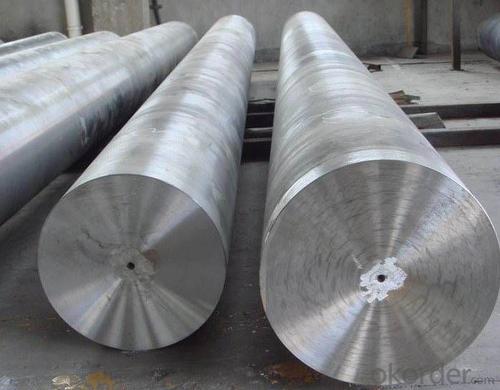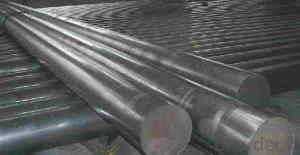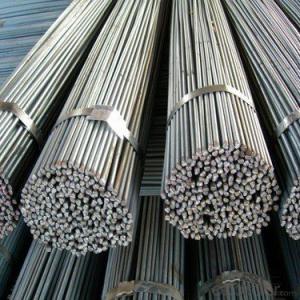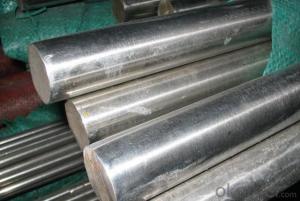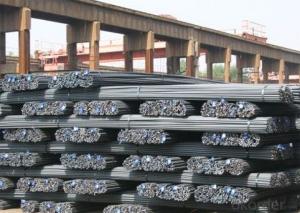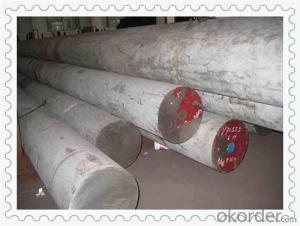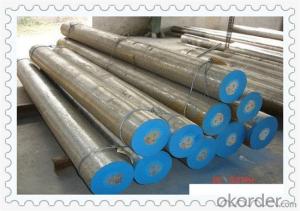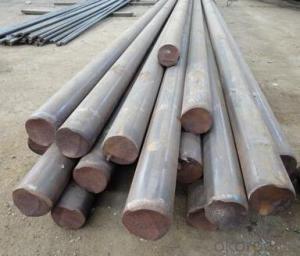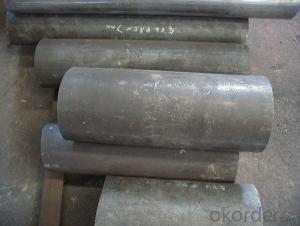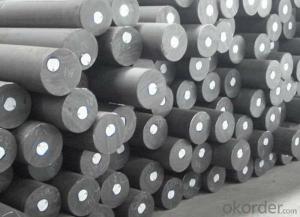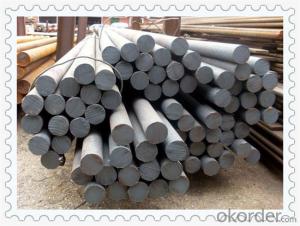AISI 1060 Carbon Steel Sae 1060 Steel Round Bar
- Loading Port:
- Tianjin
- Payment Terms:
- TT OR LC
- Min Order Qty:
- 25 m.t.
- Supply Capability:
- 50000 m.t./month
OKorder Service Pledge
OKorder Financial Service
You Might Also Like
Specification
AISI 1060 Carbon Steel Sae 1060 Steel Round Bar
Product Description:
Carbon steel, stock available in annealed and QT condition.
Flexible MOQ for order.
Delivery 5-10 days.
Good tolerance according the the OD.
Staightness could meet 1mm/M per requirement
Specification:
Round bar | Diameter: 4mm~800mm | |||||
Angle bar | Size: 3mm*20mm*20mm~12mm*800mm*800mm | |||||
Square bar | Size: 4mm*4mm~100mm*100mm | |||||
Flat bar | Thickness: 2mm~100mm | |||||
Width:10mm~500mm | ||||||
Hexagonal | Size: 4mm~800mm | |||||
Length: 2m,4m,5.8m,6m,11.8m,12m or as required. | ||||||
Chemical Composition:
Standard | C | Si | Mn | Cr | Mo | P/S ≤ |
DIN | 0.42-0.60 | 0.4 | 0.50-0.80 | 0.02 | 0.1 | 0.03 |
GB | 0.42-0.60 | 0.4 | 0.50-0.80 | 0.02 | 0.1 | 0.03 |
Characteristic:
General purpose medium carbon steel delivered in as rolled condition. It can be further heat treated to achieve specific mechanical properties. The 0.45% carbon content is not favorable for welding. However, it can be weld with appropriate pre and post weld heat treatment. Surface hardness of 57~62 HRC can be achieved with cast hardening to a depth of approximately 1mm. Used for most transmission and motor parts of medium strength. Case hardened parts such as camshafts, gears, rocking levers etc. Simple hand tools and various types of fasteners and fixtures, machinery parts and components with medium stress.
Product Show:
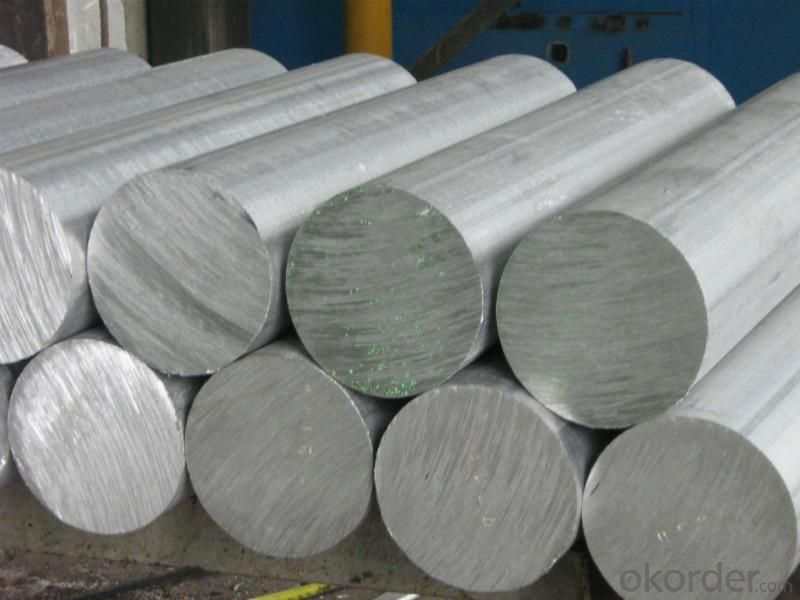
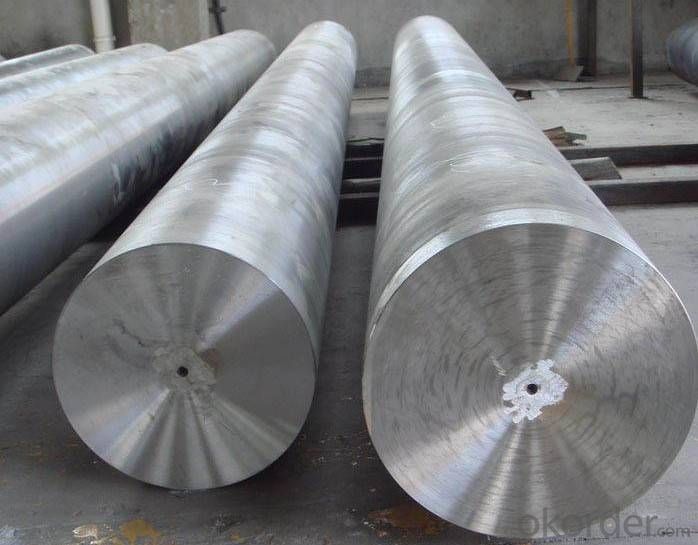
- Q: What are the different automotive grades of special steel?
- There are several different automotive grades of special steel, including stainless steel, high-strength steel, advanced high-strength steel, and ultra-high-strength steel. These grades offer varying levels of corrosion resistance, durability, and strength, making them suitable for different automotive applications.
- Q: What are the requirements for special steel used in high-performance racing cars?
- The requirements for special steel used in high-performance racing cars include high strength and durability, excellent fatigue resistance, good thermal conductivity, and the ability to withstand high temperatures and extreme conditions. Additionally, it should have low weight and high stiffness to enhance the car's performance and maintain its structural integrity under intense stress and vibration.
- Q: How does special steel contribute to the agriculture industry?
- Special steel contributes to the agriculture industry by providing durable and high-performance materials for various agricultural machinery and equipment. It is used in the manufacturing of tractor parts, plows, harvesters, and other farm implements. The strength and resistance to wear and tear of special steel enhance the efficiency and longevity of these tools, ultimately improving productivity and yield in the agriculture sector.
- Q: What are the different heat treatment furnaces used for special steel?
- Different heat treatment furnaces used for special steel include annealing furnaces, tempering furnaces, hardening furnaces, and quenching furnaces.
- Q: How does special steel contribute to improving product reliability?
- Special steel contributes to improving product reliability in several ways. Firstly, special steel is known for its exceptional strength and durability, which enhances the overall performance and lifespan of various products. It can withstand heavy loads, resist wear and tear, and maintain its structural integrity even under extreme conditions. Secondly, special steels often possess excellent corrosion resistance properties, preventing rust and deterioration over time. This is particularly crucial for products exposed to moisture or harsh environments. Additionally, special steel allows for precise manufacturing and provides consistent material properties, ensuring the quality and reliability of the final product. By utilizing special steel, manufacturers can enhance the reliability of their products, offering customers a longer lifespan, reduced maintenance requirements, and increased safety and performance.
- Q: How does special steel perform in marine applications?
- Special steel performs exceptionally well in marine applications due to its excellent corrosion resistance and high strength. The steel is specifically designed to withstand harsh marine environments, such as saltwater, which can cause corrosion and deterioration in other materials. Its resistance to corrosion ensures durability and longevity, making it an ideal choice for various marine components and structures, including ships, offshore platforms, and underwater equipment. Additionally, the high strength of special steel enhances the structural integrity and load-bearing capacity of marine applications, providing superior performance and safety in challenging conditions.
- Q: How is special steel used in the defense industry?
- Special steel is used in the defense industry for various applications such as manufacturing armored vehicles, aircraft carriers, submarines, and military-grade firearms. Its exceptional strength, durability, and resistance to high temperatures make it ideal for constructing critical components and structures that require enhanced protection and performance in combat situations.
- Q: How is precipitation-hardening steel used in the aerospace industry?
- Precipitation-hardening steel is commonly used in the aerospace industry due to its exceptional strength-to-weight ratio and high corrosion resistance. This type of steel undergoes a specialized heat treatment process that allows for the precipitation of particles within its microstructure, resulting in improved mechanical properties. These steels are used in various components and structures of aircraft, such as landing gears, engine parts, and structural frames, where strength, durability, and weight savings are crucial factors for performance and safety.
- Q: How does special steel perform in welding applications?
- Special steel performs well in welding applications due to its high strength, excellent heat resistance, and superior weldability. Its unique composition and alloying elements allow for precise control of the welding process, resulting in high-quality, durable welds. Additionally, special steel's ability to resist cracking and deformation during welding ensures reliable performance and structural integrity in various applications.
- Q: What are the properties of aluminum alloys?
- Aluminum alloys possess several properties that make them highly desirable in various industries. These properties include lightweight, excellent corrosion resistance, high strength-to-weight ratio, good formability, and electrical conductivity. Additionally, aluminum alloys can be easily cast, machined, and welded, making them highly versatile in different applications.
Send your message to us
AISI 1060 Carbon Steel Sae 1060 Steel Round Bar
- Loading Port:
- Tianjin
- Payment Terms:
- TT OR LC
- Min Order Qty:
- 25 m.t.
- Supply Capability:
- 50000 m.t./month
OKorder Service Pledge
OKorder Financial Service
Similar products
Hot products
Hot Searches
Related keywords


